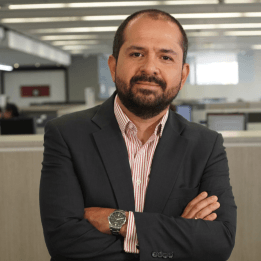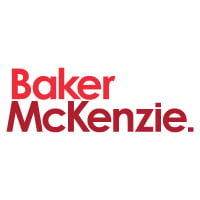

Chief legal officer | Grupo Aval Acciones y Valores



Jorge Adrián Rincón Plata
Chief legal officer | Grupo Aval Acciones y Valores
Team size: +200 lawyers groupwide
How do you approach managing legal aspects during periods of instability or crises, and how does your legal strategy align with the broader business strategy to ensure the organisation’s resilience?
Financial entities in Colombia are currently cruising through a challenging environment of inflation and high interest rates as part of macroeconomic policies, a deterioration in assets’ quality, increased regulation and the need to compete with new entrants not limited now just to neobanks and fintechs but also by the challenges posed by new entrants leveraged by the use of blockchain in what is known as decentralised finance or DeFi.
C-levels are required to contribute with different ideas and strategies to be better position the organisation vis-à-vis customers and competitors. In this atmosphere, lawyer’s value, a particularly good business lawyers, are expected to work alongside businesses, risk, financial and innovation peers in the definition of strategies that combinedly respond to these challenges.
Needless to say, that a solid legal background is the basis, lawyers with a virtuous mix of criteria and experience are proven to be fundamental in the search of solutions, innovative responses, flexibilisation of policies and processes and fine tuning of risk appetite. More often every day, lawyers have become protagonists beyond their realm of rules and regulations. Evidence of the foregoing may be found just by looking at the number of CEOs in Colombia’s top financial entities with a law degree.
In my case, I feel compelled to conduct a deep dive and an educational process with the different areas of my organisation as the best way to identify opportunities to contribute to the overall strategy and in doing so, I become better equipped to serve my role from the legal standpoint.
Getting familiar with the functioning of the different areas, not being embarrassed by asking what seem to be the most basic questions and questioning the reason behind burdensome requirements has caused my peers to question themselves with respect to the need of certain polices carved in stone that could have been originated in particular cases that do not longer apply and that nonetheless are still imposed to customers generating burdens that only make us less attractive compared to competitors.
Being good at numbers and being able to understand and analyse financial results, understanding the credit and risk profile and KYC/AML onboarding concerns, lightening the request of information, documents and signatures, thinking of alternatives to reduce costs and fees charged to customers are examples of areas where lawyers with good criteria, committed to learn from its peers, may dare to be respectfully intrusive resulting very often in the identification of opportunities for the business strategy.
What emerging technologies do you see as having the most significant impact on the legal profession in the near future, and how do you stay updated on these developments?
We went from the threat of start-ups, softbanks, neobanks and fintechs as new direct competitors that threatened the disintermediation of the financial system to the threat of decentralised finance leveraged on the use of blockchain, ledger technologies and regulatory gaps that have allowed the growth of the use of cryptocurrencies, trading platforms and wallets that increasingly diversify their product offerings in which it is already possible to use crypto assets and smart contracts to access different sources of financing and services.
Blockchain is here to stay, and financial entities need to decide the role they want to have in the financial system of the future where crypto assets, AI and ledger technologies may continue to disintermediate and decentralised traditional incumbents. Blockchain has given way to cryptocurrencies as an alternative to fiat currencies, blockchain has allowed new entrants as wallets competing with traditional banks and blockchain has permitted the raise of exchanges as fast, multicurrency, cross border payment alternatives to the traditional low value payment systems.
Financial institutions have started to realise the importance of not being left out and some have reacted disruptively with strategies such as the creation of its own stablecoins, but I do think that the fear of ledger technology has vanished and will become the next thread of the industry.
It is truly fascinating, surprising and worrying to see how ignorance and unfamiliarity with these technologies the potential has to make the legal profession unnecessary. Clearly law is not an exact science and in that sense, the interpretation of the rules and the good judgment to apply them play an important role in the practice of our profession, however, I do believe that AI and ledger technology currently represent the biggest challenge to our professional practice and the best way to face that challenge is to become knowledgeable about these technologies and their potential use to facilitate our work as lawyers.
In your opinion, what are the main trends that are salient in your country currently (these can be legal, political, economy or business-based)?
I believe that the political and regulatory discussions are the trending topics in the country and the ones currently generating the most challenges. On the one hand, there is an animosity between the private and business sector and the government that has led to the loss of communication channels. There is widespread distrust, disqualification and stereotyping between the public and private sectors. I believe that it is a serious mistake to fall into this trend of animosities and that, instead, it is our duty to build bridges to start working together in the economic reactivation of the country, particularly in the current environment.
In addition, the regulatory environment has also been a constant trend that occupies a good part of the time of companies in general. The government’s health, labour and pension reform projects, the latter recently approved, as well as the constant discussions about constitutional reforms and the different debates about their political purpose are part of the country’s constant attention, generating wear and distraction from current problems such as the stagnation and lack of investment in key sectors to reactivate the economy, such as the infrastructure, energy and housing sectors.
Chief legal officer | Grupo Aval
Chief legal officer | Grupo Aval
Chief legal officer | Grupo Aval
Chief legal counsel | Grupo Aval
Jorge Adrián Rincón Plata started his career after completing a LLM in international business law from Queen Mary University of London, as a lawyer at the Banco de Bogotá, and...